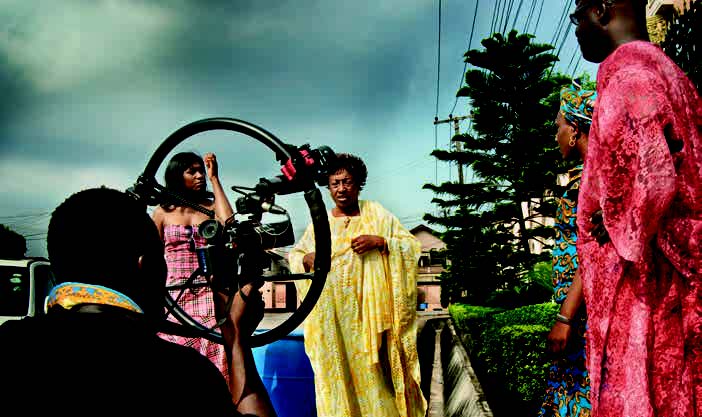Nigeria produces twice the films of Hollywood.
You know Hollywood, you know Bollywood, but chances are you can’t name the world’s third most prolific film industry. In the early 1990s, aspiring Nigerian filmmakers took the digital revolution to heart and against tremendous odds – ranging from spotty electricity to virtually no government support – ran with it, along the way turning many notions of modern-day cinema on their head.
Two decades later, Africa’s most populous country (160 million) has experienced a moviemaking boom like no other. Its inexhaustible film industry, dubbed (what else?) Nollywood, cranks out from 1,000 to 1,200 films per year – a little less than Bollywood and nearly double Hollywood’s yearly output. “Nollywood has this character, they’re just unstoppable”, says Professor Jonathan Haynes, who teaches African Studies at Long Island University in New York.
“They shouldn’t be able to do this, but they did.”
Production quality is for the most part poor; plots usually combine romance, intrigue and/or the supernatural and are sometimes literally based on yesterday’s news, as many films go from ‘development’ to DVD or VCD – the most popular forms of distribution – in a matter of weeks.
Bucking these formulas are filmmakers like Mahmood Ali-Balogun (Tango With Me), Kunie Afolayan (The Swap), Stephanie Okereke (Through the Glass) and Tunde Kelani (Maami), to name a few Nollywood superstars who have earned international recognition, yet even their films don’t travel easily.
For now, the vast majority of Nollywood films don’t make it out of Africa or the African diaspora. That still gives them a huge reach: estimates are that Nigerian films draw annual revenues of roughly €430 million, employ around 200,000 professionals and may provide some income for another one million people. Cinema has become the second largest industry, after agriculture, in this country with nearly 25% unemployment.
If you want to read it all, purchase the entire issue in pdf for just three euro
Nigeria produces twice the films of Hollywood.
You know Hollywood, you know Bollywood, but chances are you can’t name the world’s third most prolific film industry. In the early 1990s, aspiring Nigerian filmmakers took the digital revolution to heart and against tremendous odds – ranging from spotty electricity to virtually no government support – ran with it, along the way turning many notions of modern-day cinema on their head.




